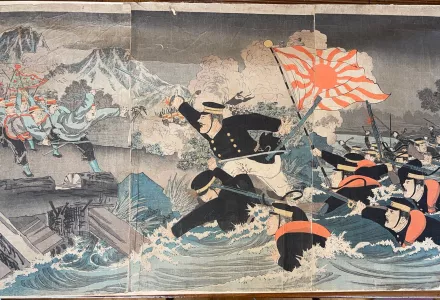The Modern Chinese Military “Spirit”: A New Genealogy
What does the concept of “spirit” have to do with the modern fighting capabilities of China’s People’s Liberation Army?
For more information, contact susan_lynch@hks.harvard.edu
What does the concept of “spirit” have to do with the modern fighting capabilities of China’s People’s Liberation Army?
For more information, contact susan_lynch@hks.harvard.edu

Speaker: Joseph Passman, Ernest May Fellow in History & Policy, International Security Program
What does the concept of “spirit” have to do with the modern fighting capabilities of China’s People’s Liberation Army (PLA)? Given the prevalence of the term “spirit” (jingshen 精神) in PLA doctrine and writings, it seems to play a significant role. As analysts and scholars have long pointed out, the PLA places a heightened emphasis on political ideology and moral indoctrination as crucial factors on the battlefield—a supposed product of their Marxist-Leninist heritage. But this seminar explores the history of that military “spirit,” tracing its roots back to China’s first modern military academy, founded in 1885 during the late Qing dynasty (1644–1911).
Drawing on new evidence to illuminate this long obscured and overlooked institution, the speaker argues for the imperial and Confucian origins of what the PLA regards as the key features that make it a modern (globally competitive) and Chinese (globally distinct) fighting force today.
Admittance is on a first come–first served basis. Tea and Coffee Provided.